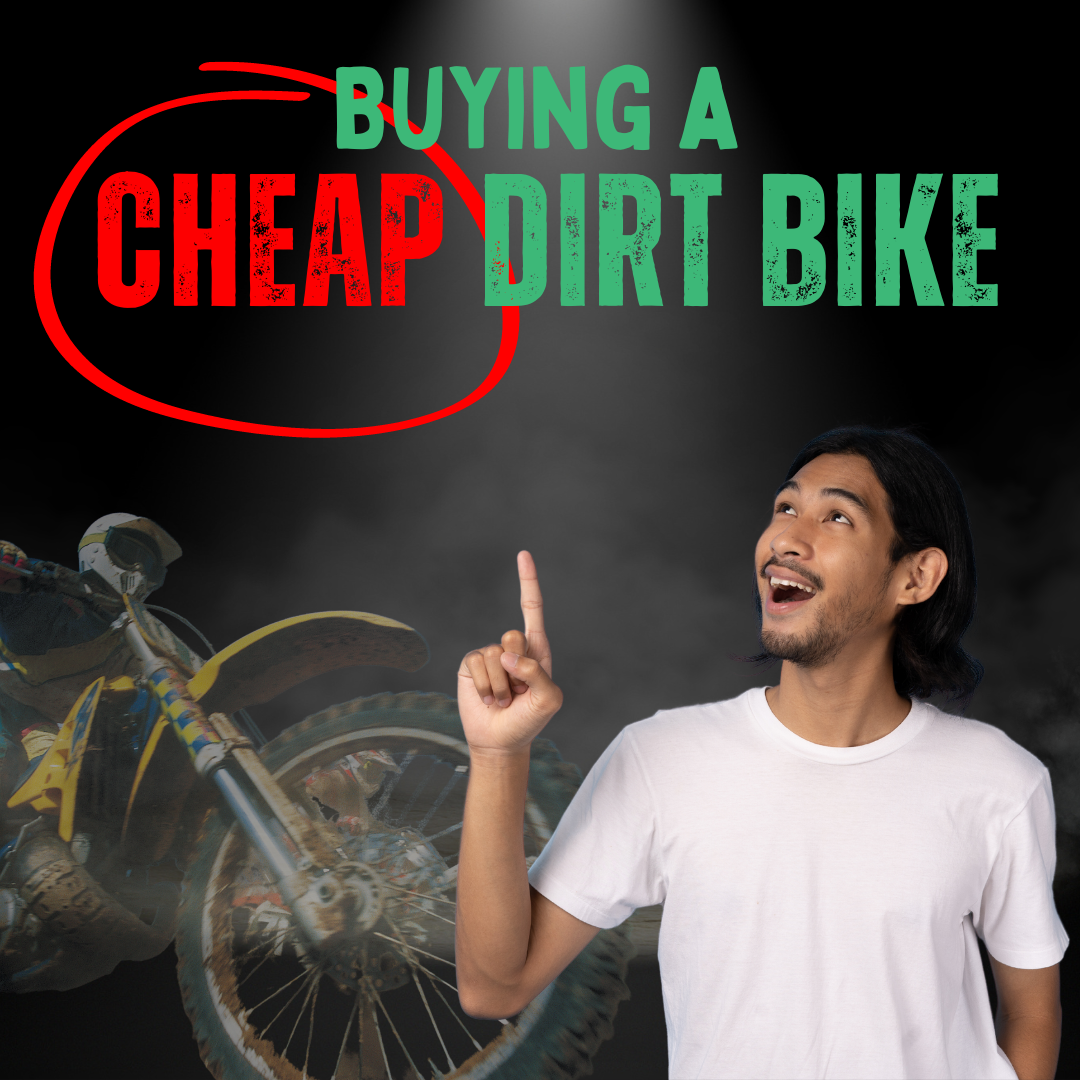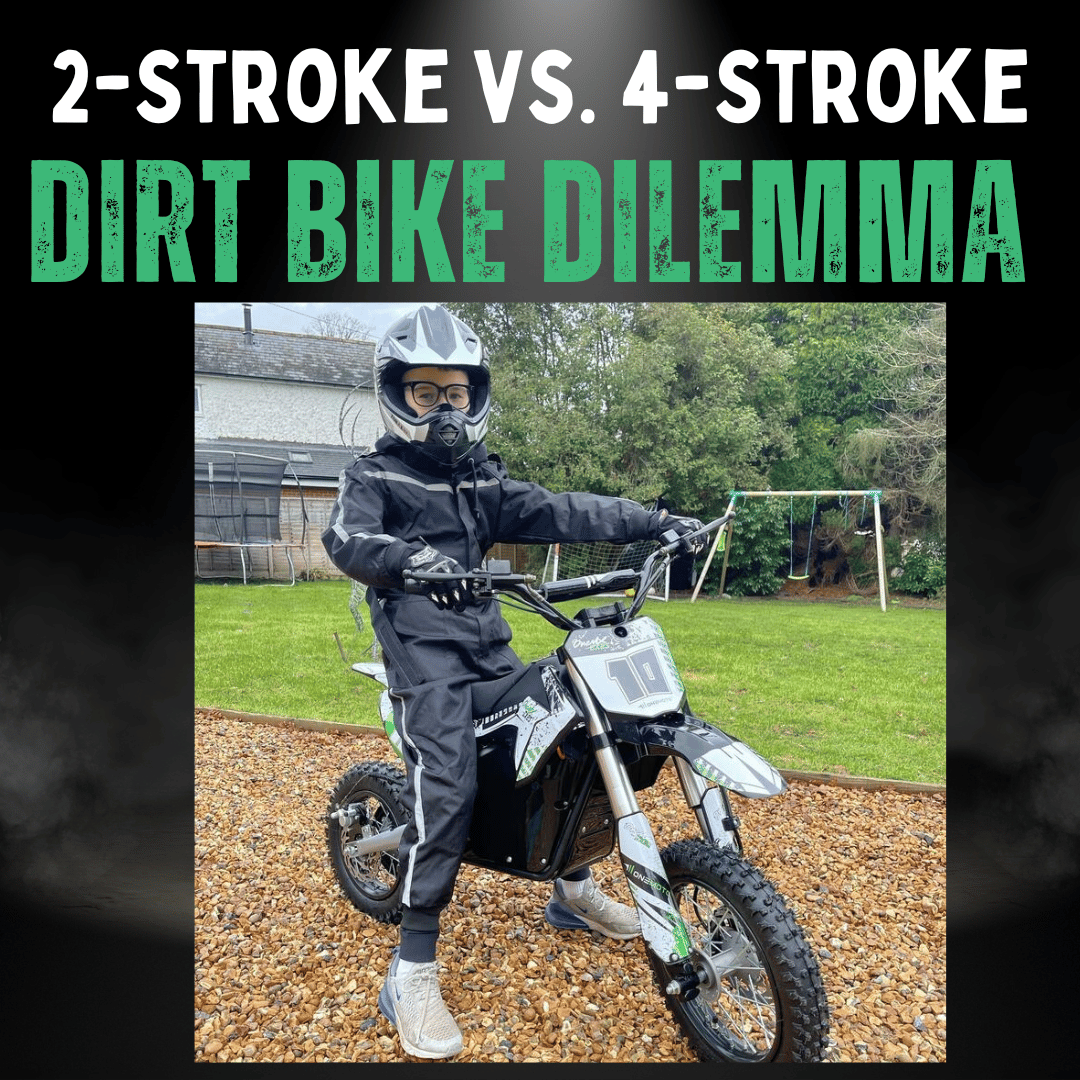
Updated: 20.05.25
Looking to score a great deal on a used dirt bike without emptying your wallet?
Whether you’re new to off-roading or a parent buying for an adventure-loving kid, the variety of options and high price tags can feel overwhelming.
Here’s how to navigate the market and save big on your next dirt bike purchase.
1. Key Tips for Buying a Used Dirt Bike
| Buying Tips | Description |
|---|---|
| Where to Find Used Dirt Bikes | Explore platforms like Facebook Marketplace, CycleTrader, or local community boards. |
| Choosing a Seller | Private sellers often offer better deals than dealerships due to lower overhead costs. |
| Find Undervalued Bikes | Look for bikes priced below market value for quick, budget-friendly purchases. |
| Inspect the Bike | Check for wear, request maintenance records, and inspect for damage. |
| Verify VIN and Engine Number | Ensure the frame (VIN) and engine numbers match the V5 document. |
| Confirm Address | Verify the V5 address matches the viewing location. |
| Review Paperwork | Avoid bikes without paperwork unless voluntarily registered with the DVLA for off-road use. |
| Negotiate the Price | Use market research and competing offers to secure a better deal. |
| Additional Savings | Explore financing, discounts, or bundling gear to reduce costs. |
2. Where to Find Used Dirt Bikes for Sale
Ready to hunt for a budget-friendly dirt bike? Here are the best places to start.
Online Marketplaces
Platforms like Facebook Marketplace, CycleTrader, and eBay Motors let you filter by location, price, and model for a tailored search.
Related: Why Are Dirt Bikes So Expensive?
Search Keywords for Better Results
Use specific terms to find the right bike:
- Brand-Specific: Include brands like Yamaha or Honda.
- Model-Specific: Search for models like “Used Yamaha TTR” or “Second-hand Honda CRF.”
How to Conduct a VIN Check
Before buying, verify the bike’s history with a VIN check:
- Locate the VIN: Check the frame or motor (locations vary by brand).
- Run a Check: Use services like VehicleCheck for a detailed history.
- Review Results: Look for issues like theft or outstanding loans.
- Verify with Seller: Ensure the seller’s information matches the report.
Buying from Private Sellers
Private sellers often offer better prices than dealerships. However, always inspect the bike and paperwork in person to avoid scams.
Related: Shop Dirt Bikes at RiiRoo
Red Flags to Watch For
Be cautious of:
- Mismatched Parts: Indicates past accidents or frequent breakdowns.
- No Maintenance Records: Suggests poor upkeep.
- Deals Too Good to Be True: Verify condition and legal status.
- Rushed Sellers: May hide issues with the bike.
Related: Factors That Affect Dirt Bike Longevity
Finding Undervalued Bikes
Some sellers undervalue bikes due to lack of knowledge or urgency. Act quickly to snag these deals.
Local Options
Check community boards, auctions, or ask around—local deals allow in-person inspections and trusted sellers.
Understanding Bike Models and Resale Value
Research models like Yamaha TTR or Honda CRF for durability and resale value:
- Brand Factor: Yamaha and Honda retain higher resale value.
- Model Traits: Choose based on trail riding or competitive needs.
Related: Do They Still Make 2-Stroke Dirt Bikes?
3. Negotiating a Great Deal
Found a bike? Time to negotiate like a pro.
Research Market Prices
Know the market value of similar models to strengthen your bargaining position.
Inspect Thoroughly
Check for worn tires, bent handlebars, or damaged plastics, and request maintenance records.
Negotiation Tactics
Use competing offers or cash payments as leverage, but stay reasonable.
Common Mistakes to Avoid
Don’t show desperation or rush the deal—be ready to walk away if it’s not right.
Related: 2-Stroke vs. 4-Stroke Dirt Bikes
4. Saving More on Your Purchase
Need to stretch your budget further? Try these strategies.
Financing Options
Financing can spread costs, but review interest rates carefully.
Coupons and Discounts
Look for seasonal promotions or seller discounts to lower costs.
Alternative Models
Consider less popular models with similar features for better value.
Bundling Gear
Buy helmets, gloves, or boots with the bike for package discounts.
| Saving Strategy | Description |
|---|---|
| Financing Options | Spread costs over months, but check interest rates. |
| Coupons and Discounts | Seek promotional deals to reduce costs. |
| Alternative Models | Choose less popular bikes with similar features. |
| Bundling for Discounts | Buy gear with the bike for package savings. |
| Buy Off-Season | Shop in late autumn or winter for lower prices. |
| Offer Cash | Cash payments can secure better deals. |
Ongoing Costs to Consider
Factor in maintenance, spare parts, and upgrades when budgeting:
- Spare Parts: Check availability for your model.
- Maintenance: Research upkeep costs.
- Upgrades: Plan for future modifications.
5. Quick Tips for Extra Savings
- Buy Off-Season: Prices drop in late autumn or winter.
- Offer Cash: Cash payments appeal to sellers.
- Be Respectful: Politeness can lead to better deals.
6. Price Comparison Resources
Use tools like Kelley Blue Book or CycleTrader to compare prices and ensure a fair deal.
Conclusion
Buying a used dirt bike doesn’t have to break the bank. With these tips, you’re ready to find a budget-friendly bike for thrilling adventures.
Frequently Asked Questions
What’s the best time to buy a used dirt bike?
Shop in late autumn or winter when demand is low and sellers are more negotiable.
Is it safe to buy a used dirt bike online?
Yes, if you verify descriptions, photos, and reviews. Inspect the bike in person before buying.
What are hidden costs of a used dirt bike?
Watch for registration fees, repairs, or part replacements when budgeting.
How do I avoid scams when buying a dirt bike?
Verify the VIN and engine numbers match the V5, confirm the seller’s address, and avoid bikes without paperwork.
What’s the best way to save money on a dirt bike?
Negotiate, buy off-season, or bundle gear for discounts to maximize savings.
Additional Reading
Are Dirt Bikes and Pit Bikes Street Legal in the UK?
Legal Age for 50cc Dirt Bikes: What You Must Know!
Get in Touch 🚀
Loved our guide on buying a cheap dirt bike? Explore more at RiiRoo.com!
Have questions about kids’ ride-on toys? Try our Live Chat or browse our motorbikes.









Share:
5 Mind-Blowing Facts About Dirt Bike Gears: You Won't Believe
10 Alarming Symptoms of a Clogged Air Filter: DON'T IGNORE THESE!